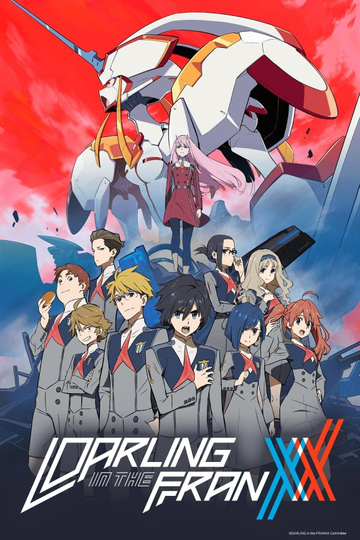2015 Episodes
1. Inbound Tour Operator - Kentaro Suda
The number of foreign tourists to Japan reached its all-time high in 2014. Tourism is now Japan's key to economic growth. Kentaro Suda is CEO of a travel company specializing in inbound tourism. Realizing the fact that 80% of tourists to Japan come from other Asian countries, he linked up with over 1,400 travel companies across Asia and quickly raised his company's profile - in 4 years, the company went from just 2 customers to 67,000. Learn Suda's secret behind this remarkable growth.
2. Super Helidoctor - Makoto Kobayashi
Hyogo Prefecture is home to a medical team that rides the helicopter to save lives in mountain communities that do not have access to advanced emergency treatments. Dr. Makoto Kobayashi's Air Ambulance team has been making the most number of emergency calls in Japan since they started operation 5 years ago, and the survival rate of patients with severe external injury have increased 5 times. Dr. Kobayashi's innovative ideas are helping to win the race against time in life-or-death situations.
3. Calligrapher with Down Syndrome - Shoko Kanazawa
With exhibitions and events both in Japan and abroad, the moving calligraphy of Shoko Kanazawa is attracting global attention that has seen her invited to New York to help raise awareness about Down Syndrome. Shoko learned the art from her mother Yasuko, and though life now is happy for the pair, fears for her disabled daughter's future once drove Yasuko to thoughts of ending it all. In this program, we introduce a mother and daughter striving to dispel misconceptions about disability.
4. Sake Evangelist - Kosuke Kuji
For 5 generations, the family of Kosuke Kuji has run Nanbu Bijin, a famed sake brewery in Iwate Prefecture. Yet, as domestic sake sales have stagnated over the last 20 years, Kuji has travelled the world to develop overseas markets. Sensing an opportunity in the 2013 addition of washoku, or Japanese cuisine, to UNESCO's Intangible Cultural Heritage list, Kuji is turning to new markets such as Australia in a bid to fulfill his dream of raising a cup of sake with people all around the world.
5. Global Branding Through Smart Farming
Agriculture in Japan faces many issues including an aging and declining workforce. Hiroki Iwasa, the representative of a farming corporation, is trying to change the industry. Using smart agriculture, he is revolutionizing strawberry production to grow luxury fruit selling for 1,000 yen each. By transforming farmers' experience and intuition into concrete data controlled by computer, he has built a system allowing all farmers to efficiently cultivate high quality produce. We follow his efforts to turn Japanese agriculture into a world-leading industry.
6. Saving the World with Euglena
Mitsuru Izumo is the CEO of bio-venture firm Euglena, named after a microorganism with enormous potential as a future food and energy source. Euglena is rich in nutrients and can also be processed to make bio-fuel. As a freshman at the University of Tokyo, Izumo visited Bangladesh where he was shocked to find many children suffering from malnutrition. He vowed to help them. After extensive research, he discovered a way to mass-produce euglena. Now, he is on a mission to save the world with his discovery.
7. Incubating a More Active Life for Senior Citizens
What kind of life awaits Japan's estimated 10 million baby boomers as more and more of them enter retirement? Mio Katagiri is the representative of Ginza Second Life, a firm that supports seniors who wish to continue working despite their advancing years. Katagiri's background in law and finance, along with a desire to assist the older generation, has helped to create a business that has so far helped some 650 companies get off the ground, and is attracting attention from all over the world.
8. Taking Affordable Medical Testing to the World!
Medical tests at just 500 yen per criterion; on-the-spot results; and advice from a trained nurse: all features of the "self health check", a revolutionary healthcare business founded by Takashi Kawazoe. With plans for expansion into India in Autumn 2015, Kawazoe is already turning his attention to markets outside Japan. We follow this young entrepreneur, whose innovative system aims to provide opportunities for newly graduated nurses, and also offers an on-call home nursing service.
9. Conveying Japan's Craft Heritage to Children
With many traditional Japanese crafts facing decline, Rika Yajima founded a brand seeking to preserve such artisanship in a novel way: offering traditionally made goods aimed at children and babies. Combining aesthetic refinement with functionality, her range includes baby clothes given anti-UV, insect-repellent and thermal properties by ancient indigo-dyeing techniques; and the "unspillable" dishware series, featuring bowls with an inner ridge to help children nudge food onto their spoons.
10. The Mascot Matriarch
Japan's unique yuru-kyara costumed promotional mascots are in the midst of a boom. And the maker behind many of the movement's biggest stars is Kigurumi.biz, led by Hiromi Kano. Her highly skilled staffs have a love for their work that gives birth to lovable characters, and with Japan's yuru-kyara attracting increasing global attention, the firm is also starting to receive orders from overseas. We follow Kano and her team as they take costumed Japanese cuteness to the world.
11. Trawler to Table via Tablet in No Time
Although Japan's long-established fresh fish industry is said to be worth around 3 trillion yen a year, a lack of new blood has recently brought the sector close to stagnation. But help is at hand in the form of innovator Masanari Matsuda (35), who has introduced tablet computing to circumvent lengthy supply chains, cutting the time from trawler to table to as little as one day. We learn about the unique business model of the man striving to bring Japan's consumers the world's freshest fish.
12. Towards a Fulfilling Society for All
akako Yamada runs an online English school based in the Philippines. Licensed local instructors teach students in Japan via videotelephony, and the company also offers scholarships to train young instructors from disadvantaged backgrounds. Yamada's aim is to build a society in which anyone can fulfill their dreams, and one new project aims to teach vocational skills. We follow Yamada as she works hand in hand with her Filipino staff to give impoverished young people a brighter future.
13. Cultivating Sushi Chefs
Becoming a sushi chef once took long years as an apprentice. Makoto Fukue turned this world on its head in 2002 when he opened Tokyo Sushi Academy, Japan's first vocational college for sushi chefs. A staff of experienced pros has so far equipped some 3,000 graduates from around the globe with the skills to preserve the Edomae sushi tradition. 2013 brought a Singapore branch, and with a second Tokyo school opening this fall, we meet a business on a mission to preserve Japan's culinary heritage.
14. Forward to the Future: Making Fuel from Old Clothes
The 1989 Hollywood hit Back to the Future Part II, saw a time-travelling DeLorean return from the year 2015, fitted with a device to use trash as fuel. Fast forward to the real 2015 to meet Masaki Takao, the man who made this technology a reality by recycling discarded clothing to make biofuel as well as developing recycling techniques, Takao has enlisted retailers and the government to engage the public in a groundbreaking garment-collection scheme. Now he hopes recycling can change the world.
15. Protecting Fisheries through Marine IT
Recent years have seen Japan's fisheries hit by issues like global warming, overfishing, and a lack of new blood, with overall catches down to a third of their one-time peak. Professor Masaaki Wada is a pioneer in the field of Marine IT, using the latest technology to facilitate sustainable fishing. Schemes including the use of tablet computers to promote data sharing among fishermen have brought a sharp recovery in diminished stocks, even attracting requests of assistance from outside Japan.















































